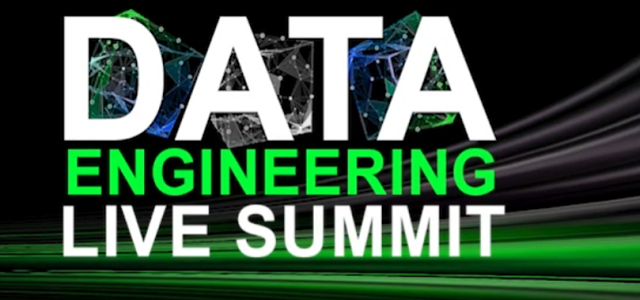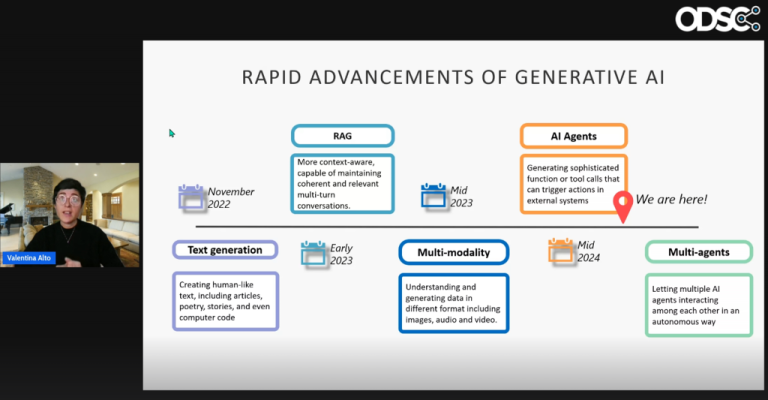Essential Data Engineering Trends and Topics to Watch in 2024
Now that we’ve stepped into 2024, it’s crucial to recognize that data engineering stands as a vital discipline for any organization aiming to leverage its data effectively. Data engineers are tasked with constructing and maintaining the essential infrastructure that enables companies to collect, store, process, and analyze information. As the volume of data generated by organizations continues to surge, so too does the imperative to utilize this data, leading to an inevitable rise in the demand for skilled data engineers. Let’s dive into 10 significant data engineering topics anticipated to shape the industry in 2024 and beyond.
Data Engineering for Large Language Models
Large Language Models (LLMs) are sophisticated AI constructs trained on extensive datasets comprised of text and code, employed for diverse tasks, including natural language processing, machine translation, and summarization. With the power of LLMs growing, and as more organizations turn toward domain-specific models, there will be an escalating need for data engineers skilled in building and sustaining the infrastructure necessary for these systems. This increasing complexity necessitates talented individuals who can adeptly manage the demanding infrastructure requirements tied to LLM deployment.
Real-Time Data
Real-time data refers to information processed and analyzed instantaneously upon generation, contrasting with batch processing, where data is collected and examined at set intervals. The importance of real-time data is on the rise as organizations strive to make quicker and more informed decisions. Therefore, data engineers will require the proficiency to gather, store, and process real-time data, a skill set that will be indispensable as the scale of this data grows.
Data Governance
Data governance entails managing data to ensure its quality, accuracy, and security, and it is becoming increasingly critical as businesses lean more heavily on data insights. Data engineers will play a pivotal role in governance initiatives to verify that the data they work with is both reliable and trustworthy. Acting as the guardians of internal data standards and policies, data engineers uphold the integrity of data across the organization.
Data Observability and Monitoring
Data observability is the capacity to monitor and troubleshoot data pipelines, while data monitoring involves collecting and analyzing metrics about these pipelines to pinpoint and resolve issues. Ensuring the reliability and performance of data pipelines hinges on robust observability and monitoring practices. Data engineers equipped with the right tools can enhance visibility into data workflows and swiftly address potential problems, ensuring that the data remains accurate and readily available.
Democratization of Data and Self-Service Analytics
The democratization of data focuses on making data accessible to users throughout the organization, while self-service analytics empowers users to analyze data independently, without needing assistance from data scientists or engineers. These trends are pivotal, allowing organizations to maximize data utility effectively.
Multi-cloud and Hybrid Cloud Adoption
The trend of multi-cloud and hybrid cloud adoption involves utilizing various cloud service providers or a blend of on-premises and cloud infrastructure. This approach is increasingly favored as organizations seek to balance the flexibility and scalability of the cloud with the control and security offered by local systems. Data engineers must familiarize themselves with multiple cloud environments and navigate the complexities of managing data across hybrid setups.
Data Privacy
As data privacy gains critical importance, protecting personal information from unauthorized access and misuse becomes paramount, particularly with regulations like GDPR and CCPA in effect. Data engineers must stay informed about these regulations while designing and implementing data pipelines that prioritize user privacy considerations.
Development of Data Fabrics and Data Mesh Architectures
Innovative data management methodologies, such as data fabrics and data mesh architectures, are set to enhance scalability, flexibility, and resilience. Data fabrics offer a centralized management approach, whereas data mesh architectures promote a decentralized perspective, both serving the dual purpose of optimizing data accessibility and performance.
Focus on Automation and DevOps Practices
The relevance of automation and DevOps practices in data engineering continues to grow, with automation streamlining data engineering tasks and DevOps enhancing the reliability and scalability of data pipelines. Emphasizing these practices will be essential as organizations strive for improved efficiency in data operations.
Ethical Data Engineering and Algorithmic Bias
Ethical data engineering involves constructing data pipelines that uphold fairness, transparency, and justice. Addressing algorithmic bias—whether intentional or unintentional—forms a significant responsibility for data engineers, especially as demand for AI-integrated tools rises. Companies are increasingly prioritizing efforts to mitigate algorithmic bias while adhering to ethical standards.
Conclusion
As we navigate through 2024, it’s evident that the field of data engineering is poised for remarkable advancements. Should these trends evolve, we can expect noticeable shifts in the landscape. For data engineering professionals, staying abreast of the latest developments is key to maintaining a competitive edge. Joining us at ODSC’s Data Engineering Summit is an excellent opportunity to engage with the forefront of these industry changes. Attend the ODSC Data Engineering Summit on April 24th to position yourself ahead of these major transformations—secure your pass today and remain at the cutting edge.
As organizations strive to enhance their decision-making processes with greater speed and accuracy, the role of data engineering is becoming increasingly vital. Data engineers are required to cultivate the skills and utilize the tools essential for collecting, storing, and processing real-time data. The demand for these capabilities will escalate as the amount of data generated continues to grow exponentially.
Data governance has emerged as a critical process for managing data to uphold its quality, accuracy, and security. With the increasing reliance on data across organizations, the importance of robust data governance cannot be overstated. Data engineers must actively participate in data governance initiatives, ensuring that the data they handle is reliable and trustworthy. Serving as gatekeepers, data engineers ensure that internal data standards and policies are consistently upheld.
EVENT – ODSC East 2024
In-Person and Virtual Conference
April 23rd to 25th, 2024
Join us for an in-depth exploration of the latest trends, tools, and techniques in data science and AI, covering everything from large language models to data analytics, machine learning, and responsible AI practices.
REGISTER NOW
Data Observability and Monitoring
Data observability refers to the capability to monitor and troubleshoot data pipelines effectively. It complements data monitoring, which entails gathering and analyzing information about data pipelines to detect and resolve issues. Ensuring the reliability and performance of these pipelines hinges on data observability and monitoring. It involves identifying and addressing data discrepancies while tracking data usage patterns. By utilizing specialized tools, data engineers can gain insights into their data pipelines and pinpoint potential issues. Employing monitoring tools allows data engineers to track data trends and usage, reinforcing the integrity and availability of the data they manage.
Democratization of Data and Self-Service Analytics
The democratization of data signifies the effort to make data accessible to a broader range of users within the organization. Self-service analytics empowers users to independently analyze data without needing a data scientist or engineer. These trends are pivotal as they enable organizations to unlock the full potential of their data assets.
Multi-cloud and Hybrid Cloud Adoption
The rising trend of multi-cloud and hybrid cloud adoption involves leveraging multiple cloud service providers or combining on-premises infrastructure with cloud solutions. Organizations are increasingly embracing this approach to harness the benefits of both cloud flexibility and the control of traditional data environments. Consequently, data engineers must be proficient in managing data across multiple cloud platforms and navigating the associated challenges.
Data Privacy
Data privacy concerns the safeguarding of personal information from unauthorized access, misuse, or disclosure. With the enforcement of regulations like GDPR and CCPA, awareness of data privacy has intensified. Data engineers are tasked with understanding these regulations and constructing data pipelines that prioritize user privacy and protection.
Development of Data Fabrics and Data Mesh Architectures
Innovative data management strategies, such as data fabrics and data mesh architectures, are gaining traction to enhance scalability, flexibility, and resilience. Data fabrics adopt a centralized management approach, whereas data mesh architectures propose a decentralized method of handling data.
Focus on Automation and DevOps Practices
The rise of automation and DevOps integration within data engineering practices is notable. Automation serves to minimize the time and costs associated with data engineering tasks, while DevOps methodologies enhance the reliability and scalability of data pipelines. As efficiency becomes a primary objective for organizations, mastering both automation techniques and DevOps best practices will be increasingly crucial for data engineers.
Ethical Data Engineering and Algorithmic Bias
Ethical data engineering involves creating and executing data pipelines that are fair, just, and transparent. Algorithmic bias refers to any unintended or intentional discrimination arising from algorithmic decision-making. Data engineers bear the responsibility of ensuring that their pipelines are devoid of bias, especially as the demand for AI-integrated solutions grows. Organizations will continuously strive to mitigate the risk of algorithmic bias to uphold their ethical commitments.
Conclusion
It is evident that 2024 holds tremendous promise for the field of data engineering. As these trends and perhaps even more emerge, significant transformations are anticipated within the discipline. For professionals in data engineering, staying ahead means keeping abreast of the latest advancements. Joining us at the ODSC Data Engineering Summit will be an excellent opportunity to remain informed about forthcoming changes. By attending the ODSC Data Engineering Summit on April 24th, you can position yourself at the forefront of the transformations in the industry. Secure your pass today and ensure you stay ahead of the curve.






